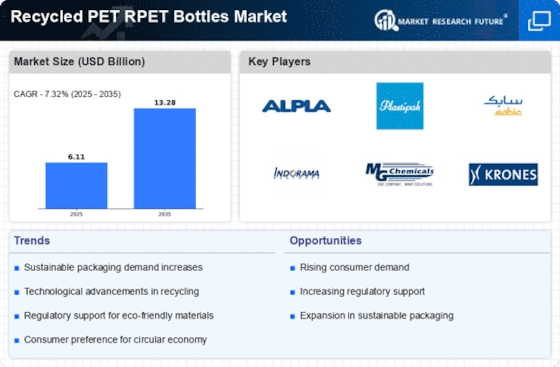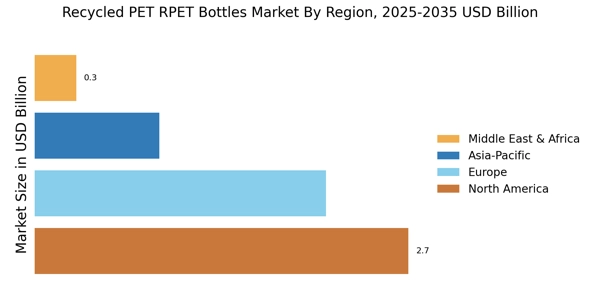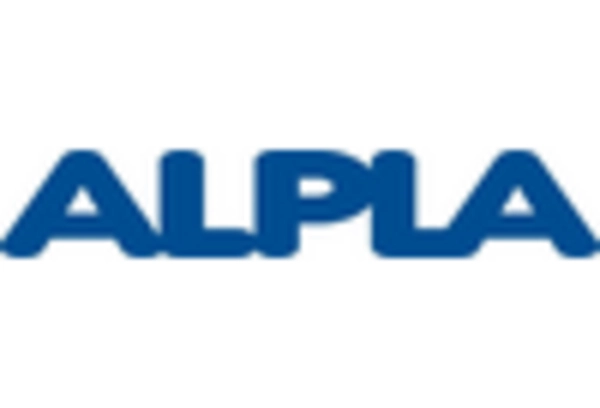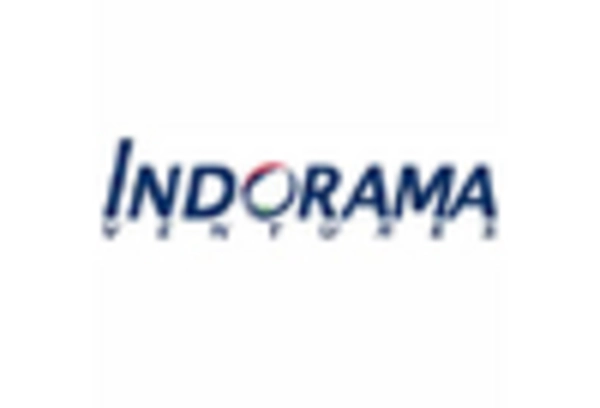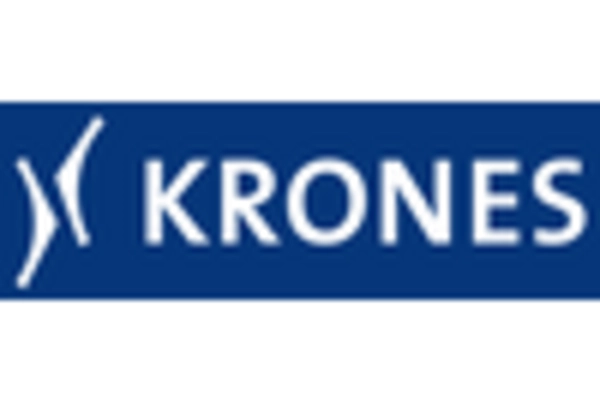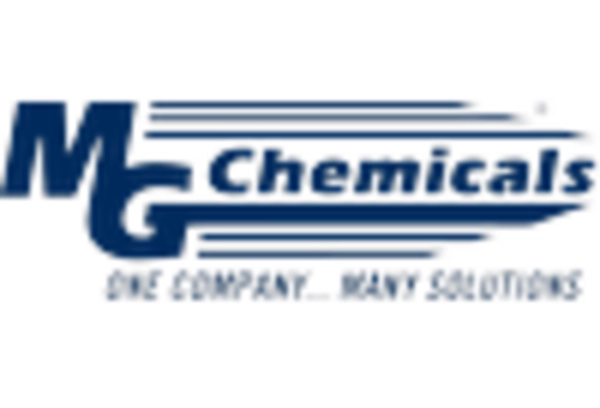Corporate Sustainability Goals
Many corporations are setting ambitious sustainability goals, which significantly impacts the Recycled PET RPET Bottles Market. A growing number of companies are committing to using 100% recyclable materials in their packaging by 2030. This commitment is not merely a trend; it is becoming a strategic imperative for businesses aiming to reduce their carbon footprint. Market data reveals that companies utilizing recycled materials can reduce greenhouse gas emissions by up to 30%. As corporations increasingly adopt these practices, the demand for recycled PET bottles is likely to rise, further propelling the Recycled PET RPET Bottles Market forward.
Rising Environmental Regulations
The Recycled PET RPET Bottles Market is significantly influenced by rising environmental regulations aimed at reducing plastic waste. Governments worldwide are enacting laws that mandate the reduction of single-use plastics and promote recycling initiatives. These regulations create a pressing need for companies to adopt sustainable practices, including the use of recycled PET in their products. As a result, businesses are increasingly investing in the development of recycled PET bottles to comply with these regulations. This trend not only supports environmental goals but also positions the Recycled PET RPET Bottles Market for substantial growth as companies seek to align with regulatory requirements.
Government Regulations and Incentives
Government regulations and incentives play a crucial role in shaping the Recycled PET RPET Bottles Market. Many governments are implementing stringent regulations aimed at reducing plastic waste and promoting recycling. For instance, some regions have introduced mandates requiring a certain percentage of recycled content in plastic products. Additionally, financial incentives for companies that utilize recycled materials are becoming more common. These regulatory frameworks not only encourage the use of recycled PET but also create a more favorable market environment for the Recycled PET RPET Bottles Market, potentially leading to increased investment and innovation.
Technological Innovations in Recycling
Technological innovations are transforming the Recycled PET RPET Bottles Market by enhancing the efficiency and effectiveness of recycling processes. Advanced sorting technologies and chemical recycling methods are emerging, allowing for higher purity levels in recycled PET. This technological progress is crucial, as it addresses quality concerns that have historically hindered the adoption of recycled materials. Market data suggests that the introduction of these technologies could increase the recycling rate of PET bottles by up to 50% in the next five years. As these innovations proliferate, they are likely to bolster the Recycled PET RPET Bottles Market, making recycled products more competitive.
Consumer Demand for Sustainable Products
The Recycled PET RPET Bottles Market is experiencing a notable surge in consumer demand for sustainable products. As environmental awareness increases, consumers are gravitating towards brands that prioritize eco-friendly packaging. This shift is reflected in market data, indicating that approximately 70% of consumers are willing to pay a premium for products packaged in recycled materials. Companies are responding by integrating recycled PET into their supply chains, thereby enhancing their brand image and meeting consumer expectations. This trend not only drives sales but also fosters loyalty among environmentally conscious consumers, suggesting a robust growth trajectory for the Recycled PET RPET Bottles Market.


